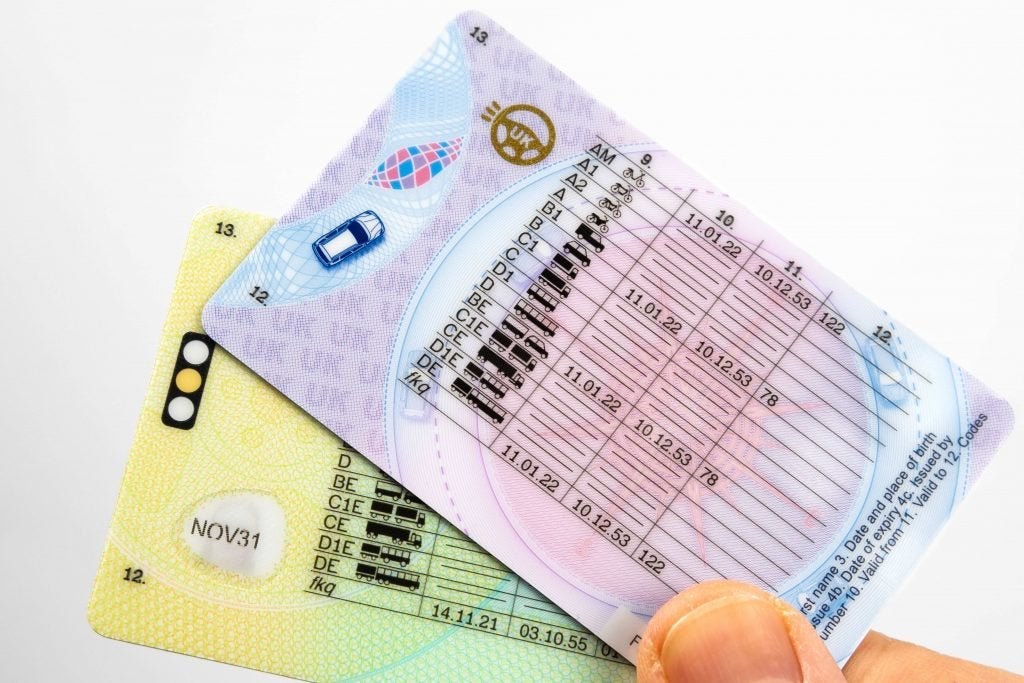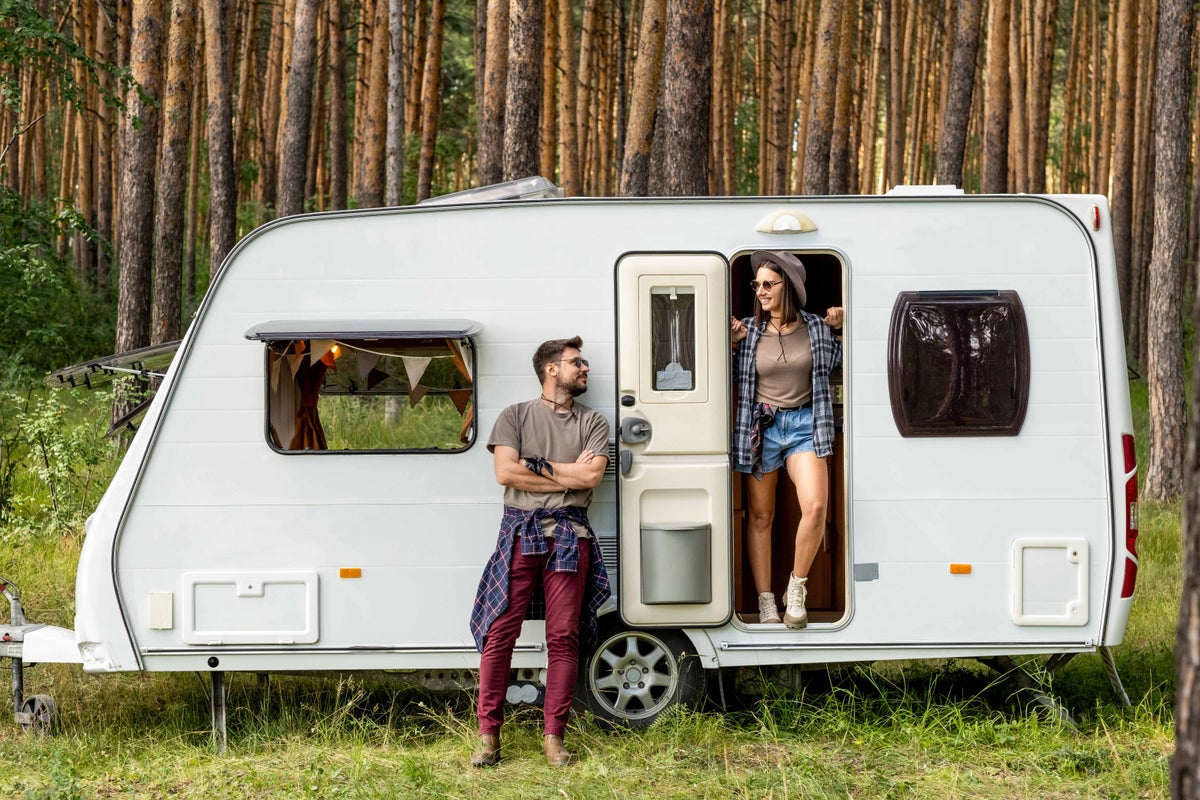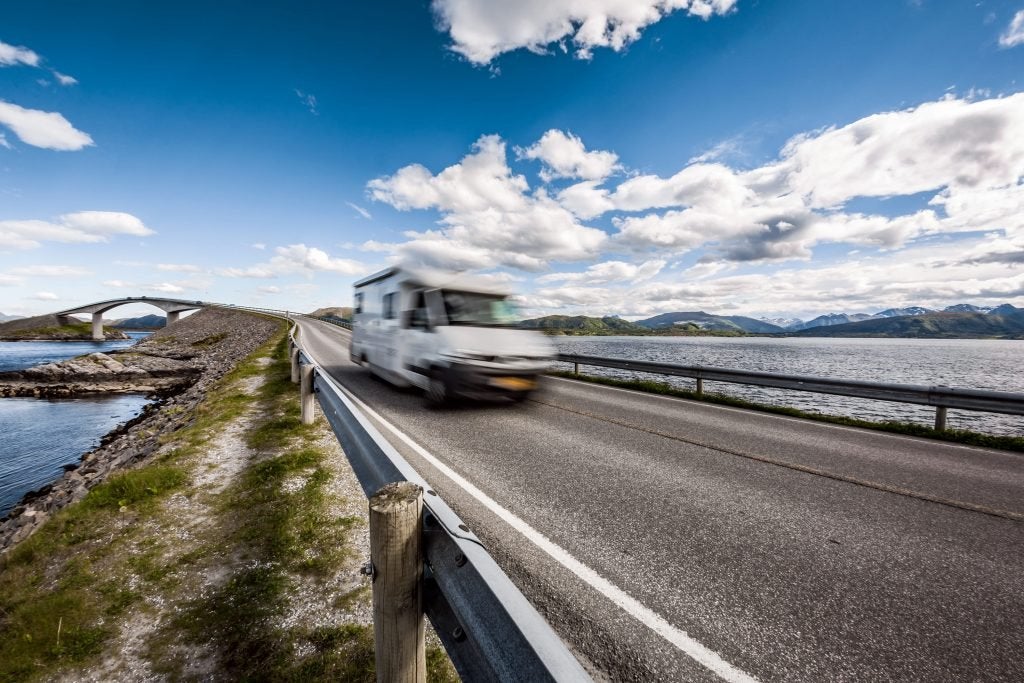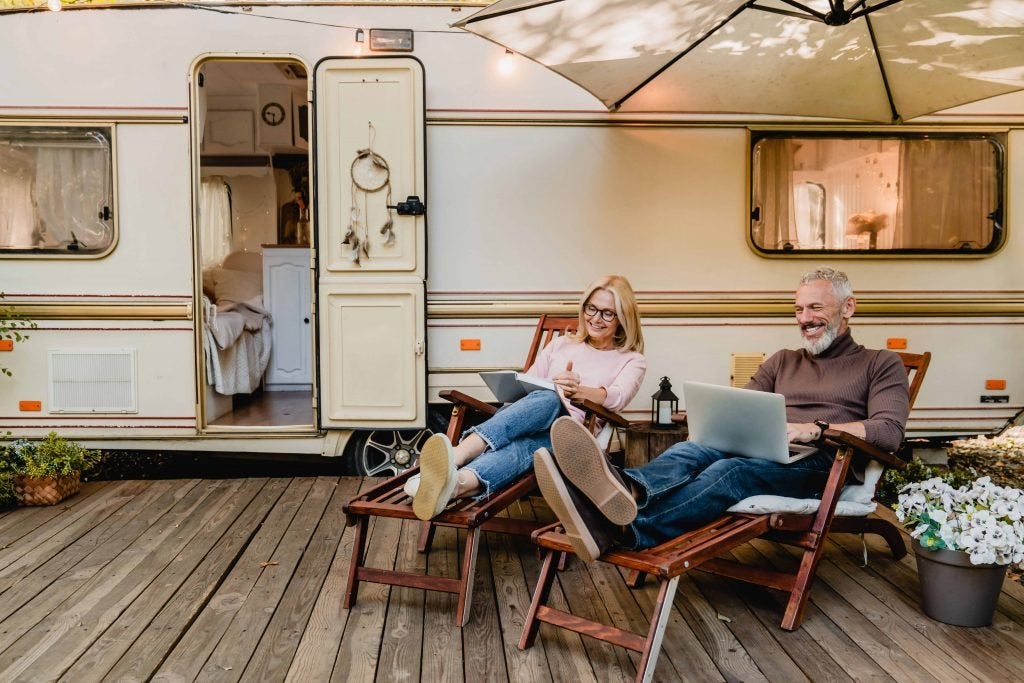UK to Europe: Can I Take My Caravan Around Europe?

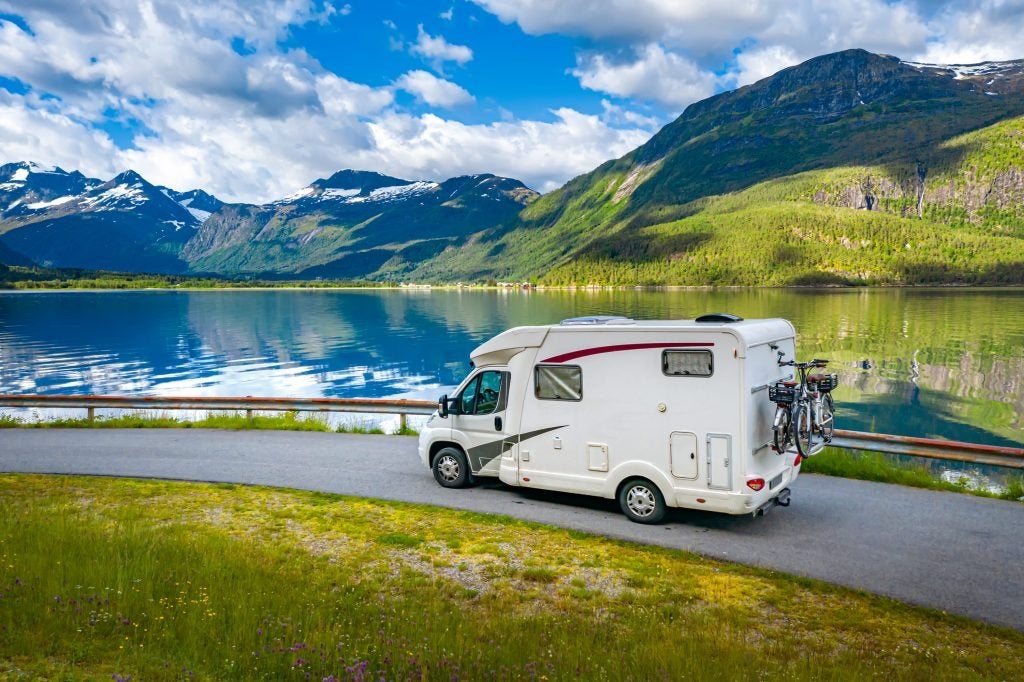
In the world of travel, exploring Europe with a touring caravan is a dream for many adventurers. The allure of open roads, picturesque landscapes, and the freedom to roam from one charming destination to another is irresistible. However, before hitching up your caravan and setting off on your European adventure, it's essential to understand the complex web of regulations governing caravan travel on the continent. From driving license requirements to weight allowances and technical considerations, navigating these rules can seem daunting at first. But fear not! In this comprehensive guide, we'll break down everything you need to know about taking your touring caravan abroad around Europe.
Understanding European Union Laws
In Europe, touring with your caravan is a popular way to explore the continent's diverse landscapes and cultures. However, before embarking on your adventure, it's essential to understand the laws and regulations governing caravan travel in the European Union (EU).
The EU has harmonised many aspects of caravan regulations across its member states, but nuances still exist. One significant difference lies in the terminology used. In the UK we call these vehicles Caravans or Campers, while in the United States, these vehicles are commonly referred to as RVs, in the rest of Europe, they are known as campers also. Understanding these distinctions can help avoid confusion when navigating regulations.
European campers come in three main categories: vans, semi-integrated campers, and integrated campers. Vans, often DIY-converted or professionally converted by emerging companies, are the smallest and most popular option. They offer flexibility and convenience, requiring only a regular driver's license to operate.
Semi-integrated campers, on the other hand, feature a cabin made by carmakers like Fiat, Citroen, or Mercedes, with a travel trailer bolted onto the rear. While larger than vans, they are still often under the 3.5-ton limit, allowing drivers to operate them with a standard license. Integrated campers, resembling American RVs, offer luxury and comfort but tend to be heavier and more expensive. However, they provide ample space and amenities for long-term travel.
It's important to note that European campers are designed to fit European standards, reflecting the continent's narrower roads and older city infrastructure. European campers are relatively compact, making them more suitable for navigating European roads.
While EU laws aim for consistency, there may be discrepancies between member states due to translation errors or unique national regulations. Therefore, it's essential to familiarise yourself with the specific laws of the countries you plan to visit.
By understanding EU laws and regulations, you can ensure a smooth and enjoyable touring experience across Europe with your caravan.
Driving License Requirements
In Europe, the rules for towing a caravan vary depending on the weight of your rig, and understanding these regulations is crucial before hitting the road. Here's a breakdown of driving license requirements you need to know:
1. License Categories: - In most European countries, the type of driving license you need to tow a caravan depends on the weight of your vehicle and trailer combination. - Generally, if the combined weight of your towing vehicle and caravan exceeds 3,500 kilograms (or around 7,700 pounds), you'll need a specific towing license.
2. Standard License (Category B): - For towing a caravan with a combined weight under 3,500 kilograms, a standard Category B license is usually sufficient. - This license is typically obtained through standard driving lessons and tests.
3. Towing License (Category B+E): - If your caravan and towing vehicle combination exceeds 3,500 kilograms, you'll likely need to upgrade to a Category B+E license. - This license allows you to tow heavier trailers within the limits of your vehicle's towing capacity.
4. Stay Informed: - It's essential to stay updated on the latest driving regulations, as they can vary between countries and may change over time. - Regularly check with local authorities or driving agencies to ensure you're compliant with current laws.
5. Safety First: - Even if your caravan falls within the weight limits of your standard license, consider taking additional towing courses for added safety and confidence on the road. - These courses can provide valuable tips on towing techniques, vehicle maintenance, and handling different road conditions.
6. Consider Upgrading: - If you plan to tow heavier trailers or caravans frequently, investing in a Category B+E license can offer peace of mind and flexibility. - While upgrading may require additional training and testing, it can enhance your towing capabilities and open up more travel opportunities.
7. Check International Requirements: - If you're planning to travel across multiple European countries, be aware that license requirements may vary. - Some countries may have specific regulations or restrictions for towing, so research and prepare accordingly before embarking on your journey.
8. Consult Experts: - If you're unsure about license requirements or towing regulations in specific countries, seek advice from experienced caravan enthusiasts or professional driving instructors. - They can provide valuable insights and guidance to ensure your caravan adventures are safe and compliant with local laws.
By understanding the driving license requirements for towing a caravan in Europe, you can enjoy your travels with confidence and peace of mind.
Weight Allowances and Regulations
When it comes to touring caravans in Europe, understanding weight allowances and regulations is crucial to ensure a safe and legal journey. Let's delve into the specifics of weight limits and regulations governing caravan travel across the continent.
European regulations categorise caravans and trailers based on their weight, each category corresponding to different driving license requirements. For instance, caravans weighing under 750 kilograms are considered lightweight and can typically be towed with a standard driving license. However, as the weight of the caravan increases, so do the licensing requirements.
Moving up the weight scale, caravans between 750 kilograms and 3.5 tons require a standard class B driving license. It's essential to note that the combined weight of the towing vehicle and the caravan must not exceed 3.5 tons. Moreover, the gross weight of the caravan should not surpass the weight of the towing vehicle. This regulation ensures the safe operation of the towing rig and maintains stability on the road.
For caravans exceeding 3.5 tons in gross weight, drivers may need to upgrade their driving license to a B+E (BE) category. This license permits the operation of heavy trailers up to the upper limit of the towing vehicle's capacity. While not mandatory in all European countries, obtaining a B+E license offers peace of mind and ensures compliance with evolving regulations.
Additionally, it's essential to consider the technical aspects of towing, including the towing hitch's weight limit. Most cars and towing hitches in Europe have a maximum towing capacity of around 2,000 kilograms. Therefore, when selecting a caravan, it's vital to ensure that its weight falls within the towing capacity of the vehicle to maintain safety and performance.
Despite adherence to weight regulations, it's crucial to stay informed about any changes or updates in towing a caravan laws across European countries. While EU laws provide a standardised framework, individual nations may have specific requirements or restrictions.
In summary, understanding weight allowances and regulations is paramount for touring caravan enthusiasts traversing Europe's diverse landscapes. By adhering to weight limits, selecting suitable towing equipment, and staying informed about legal requirements, travellers can embark on memorable journeys with confidence and peace of mind.

Technical Considerations
When it comes to taking your touring caravan around Europe, understanding the technical aspects is crucial for a smooth journey. Let's delve into some key considerations:
1. Towing Hitches: Before hitting the road, ensure your towing hitch is up to the task. In Europe, most cars come equipped with towing hitches, but it's essential to check the weight limits. Investing in a quality towing hitch that complies with European standards is advisable. Remember, safety first!
2. Electrical Plugs: European caravans typically use either a 7-pin or a 13-pin electrical plug for lighting and auxiliary power. While the 7-pin plug is common, opting for the newer 13-pin plug offers additional functionality, including powering a fridge while on the move. It's worth considering upgrading to the 13-pin plug for added convenience during your travels.
3. Weight Limits: Understanding weight limits is paramount. European regulations stipulate weight limits for both towing vehicles and trailers. Ensure your caravan's weight falls within the permissible limits to avoid legal complications and ensure safe towing. Exceeding weight limits can affect vehicle performance and compromise road safety.
4. Car and Towing Hitch Capacity: Check your car's towing capacity and the weight limits specified for your towing hitch. It's essential to match the caravan's weight to your vehicle's towing capabilities to prevent strain on the engine and transmission. Exceeding these limits could lead to mechanical issues and compromise your safety on the road.
5. Considerations for European vs. American Trailers: If you're accustomed to American trailers, be aware of the differences when towing in Europe. European trailers are generally smaller and lighter, reflecting the region's narrower roads and historical infrastructure. Opting for a European caravan ensures compatibility with local regulations and infrastructure.
6. Cost Considerations: Upgrading your car's towing capabilities or installing a towing hitch can incur additional costs. While branded towing hitches may offer peace of mind, exploring non-branded options from reputable sources can provide a cost-effective solution without compromising quality. Consider the long-term benefits and weigh your options accordingly.
7. Maintenance and Upkeep: Regular maintenance of your towing vehicle and caravan is essential for safe and trouble-free travels. Schedule routine checks on brakes, tires, and electrical systems to address any potential issues before they escalate. Proper upkeep ensures optimal performance and prolongs the lifespan of your caravan and towing equipment.
By addressing these technical considerations before embarking on your European caravan adventure, you'll set yourself up for a rewarding and stress-free journey.
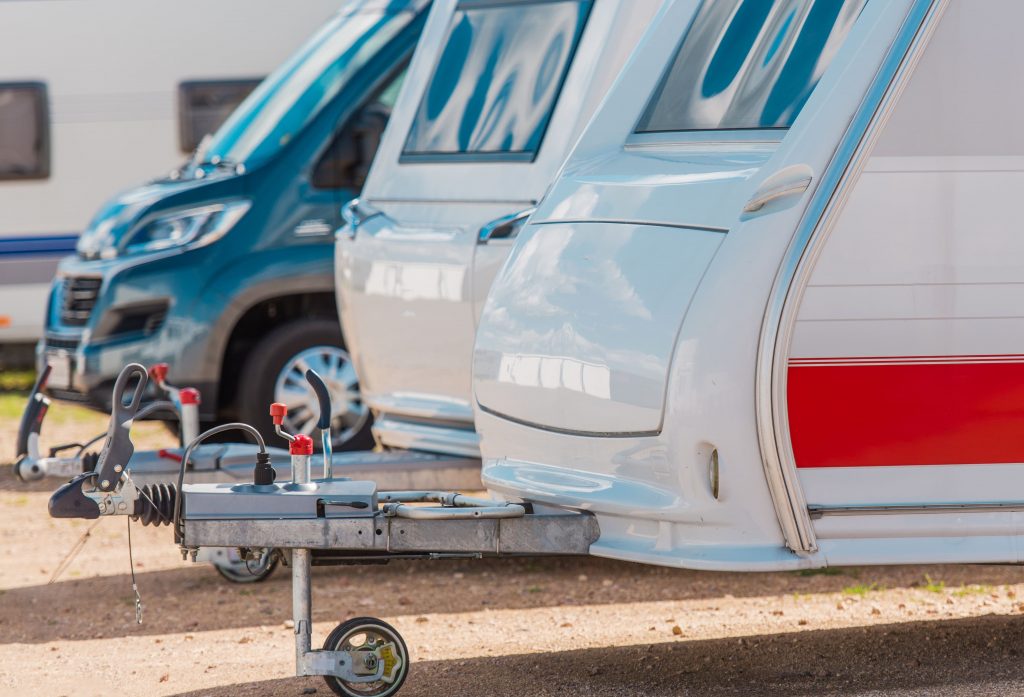
Tips for Buying and Towing a Caravan in Europe
When it comes to buying and towing a caravan in Europe, there are several key tips to keep in mind to ensure a smooth and enjoyable experience.
1. Choose the Right Caravan: Opt for a caravan that suits European roads and regulations. Consider factors such as size, weight, and amenities. Look for caravans that meet European safety standards and are equipped with features suitable for European camping sites.
2. Research Reputable Dealers: Take the time to research and find reputable caravan dealers in Europe. Look for dealers with a track record of providing quality products and excellent customer service. Reading reviews and seeking recommendations from other caravan enthusiasts can help you find the right dealer.
3. Consider Used Caravans: Don't overlook the option of purchasing a used caravan. Many older caravans are well-maintained and offer most of the features of newer models at a fraction of the cost. However, ensure that the used caravan meets safety standards and has been properly maintained.
4. Inspect the Caravan Thoroughly: Before making a purchase, thoroughly inspect the caravan for any signs of damage or wear and tear. Check for leaks, structural issues, and functional problems with appliances and systems. It's also essential to ensure that the caravan's documentation, including registration and service records, is in order.
5. Understand Towing Regulations: Familiarise yourself with the towing regulations in the countries you plan to visit. Ensure that your towing vehicle is capable of safely towing the caravan and that you have the necessary driving license endorsements. Pay attention to weight limits, towing hitch requirements, and speed restrictions.
6. Invest in Proper Equipment: Invest in high-quality towing equipment, including towing hitches, stabilisers, and towing mirrors. Ensure that your towing vehicle is equipped with the necessary towing package and that all equipment is properly installed and maintained.
7. Practice Towing Skills: If you're new to towing a caravan, take the time to practice towing in a safe and controlled environment before hitting the road. Practice manoeuvring, reversing, and parking with the caravan attached to gain confidence and proficiency behind the wheel.
8. Plan Your Routes Carefully: Plan your caravan routes carefully, taking into account factors such as road conditions, terrain, and camping site availability. Consider using GPS navigation systems designed for caravanners, which can help you avoid narrow roads, low bridges, and other hazards.
By following these tips, you can ensure that buying and towing a caravan in Europe is a rewarding and stress-free experience, allowing you to enjoy the freedom and adventure of exploring the continent on your terms.
Legal Considerations in Specific European Countries
When taking your touring caravan around Europe, it's essential to familiarise yourself with the specific regulations of each country you plan to visit. While there are overarching EU laws, individual countries may have their own unique requirements and restrictions.
In some European countries, such as the Czech Republic and Slovakia, there are specific rules regarding towing caravans. For instance, on highways in the Czech Republic, you'll need a stamp for your towing car, while in Slovakia, separate stickers are required for your car and caravan. It's crucial to research and adhere to these regulations to avoid any potential fines or penalties.
Moreover, if your caravan exceeds a gross weight of 3.5 tons in certain countries, you may need to install an electronic onboard unit to automatically pay for tolls, similar to trucks and trailers. Additionally, driving with a car and trailer in tow may result in higher toll fees and lower speed limits, varying from country to country.
Understanding these legal considerations will not only ensure compliance with local laws but also contribute to a smoother and more enjoyable touring experience. Before embarking on your journey, take the time to research and familiarise yourself with the specific regulations of each country you'll be visiting. This proactive approach will help you avoid any potential issues and allow you to fully enjoy the adventure of touring Europe with your caravan abroad.
If you're uncertain about the regulations in a particular country, consider consulting local authorities or reaching out to fellow caravan enthusiasts who have experience travelling in that region. By staying informed and prepared, you can navigate the legal landscape with confidence and make the most of your touring experience in Europe.
Practical Advice for Touring Europe with a Caravan
Touring Europe with your caravan can be an exhilarating adventure, but it's essential to be well-prepared. Here are some practical tips to make your journey smoother:
1. Plan Your Route Carefully: Before setting off, research your route thoroughly. Consider factors such as road conditions, tolls, and camping facilities along the way. Invest in a reliable GPS or navigation app designed for caravans to avoid narrow roads or low bridges.
2. Choose Campsites Wisely: Look for campsites that cater specifically to caravans and motorhomes. Ensure they offer amenities such as electricity hookups, water, and waste disposal facilities. Booking in advance, especially during peak seasons, can save you the hassle of finding a spot upon arrival.
3. Pack Efficiently: Space in a caravan is limited, so pack only the essentials. Opt for lightweight, multi-purpose items to maximise storage capacity. Consider investing in collapsible furniture and storage solutions to keep your living space organised.
4. Stay Safe on the Road: Prioritise safety by adhering to speed limits and traffic regulations. Perform regular maintenance checks on your caravan, including tyres, brakes, and lights. Practice manoeuvring and reversing with your caravan before embarking on long journeys.
5. Be Mindful of Local Customs: Familiarise yourself with local customs and etiquette in each country you visit. Respect quiet hours at campsites, dispose of waste responsibly, and adhere to parking regulations. Engaging with local communities can enhance your cultural experience and foster positive relationships.
6. Embrace Flexibility: While planning is essential, be prepared to adapt to unforeseen circumstances. Weather conditions, road closures, or spontaneous detours may necessitate changes to your itinerary. Embrace flexibility and maintain a positive attitude to make the most of your travels.
7. Connect with Other Travellers: Take advantage of online forums, social media groups, and caravan clubs to connect with fellow travellers. Sharing experiences, tips, and recommendations can enrich your journey and provide valuable insights into destinations.
By following these practical tips, you can navigate Europe with confidence and enjoy unforgettable experiences on the road.
In wrapping up, touring Europe with your caravan is not only feasible but can also be incredibly rewarding. While navigating the various regulations and requirements may seem daunting at first, taking the time to understand them ensures a smoother and more enjoyable journey.
Remember, staying informed about EU laws, driving license requirements, weight allowances, and technical considerations is key to a successful trip. By following these guidelines and seeking advice from reputable sources, you can confidently explore the diverse landscapes and cultures that Europe has to offer.
So, whether you're planning a leisurely tour through the picturesque countryside or embarking on an adventurous road trip across multiple countries, your touring caravan can be your ticket to unforgettable experiences. With careful planning, practical advice, and a sense of adventure, the open road awaits. Happy travels!

